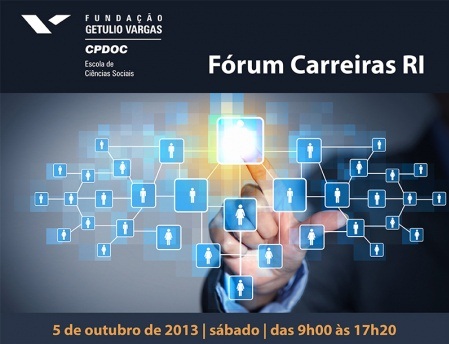
Today the Center for International Relations, based in the School of Social Sciences (CPDOC) at FGV in São Paulo, is organizing a day-long debate about careers in international relations. Speakers include diplomats, journalists, political advisers, consultants, lobbyists and entrepreneurs, among others.
Over the past decade, the field of International Relations has seen an unprecedented boom in Brazil. There are more than 100 IR undergraduate programs, compared with only a handful in the 1990s. This is partly a response to Brazil’s growing global visibility and exposure to international issues. Traditionally, international issues rarely made headlines in the newspapers. Brazil’s rise increased the country’s insertion in the global economy, and President Lula’s assertive foreign policy contributed to the politicization of foreign policy, and nowadays it is common to see topics such as the crisis in the EU, negotiations with Iran or the rise of China occupy prominent space in the Brazilian media. This is largely a positive development: Foreign policy is now increasingly part of the democratic process, and the Foreign Minister now has to regularly justify his policies and face criticism – something quite rare in the past.
Yet Brazil remains rather isolated in comparison to other emerging powers, so the growing number of students studying international issues is to be welcomed. But caution is also warranted: While the number of I.R. students has surged, it is a far more complicated process to increase the number of qualified professors and lectures in the field, and there are still not enough PhDs in International Relations, International Politics or related fields to satisfy demand. At the same time, it remains to be seen in how far the market can absorb the growing number of graduates in the area – after all, Brazil’s foreign ministry selects only 30 applicants every year to become diplomats. While many actors in the private, public and not-for-profit sector lack the expertise to deal with international challenges, some members of Brazil’s older generation remain unsure what an International Relations degree really is, and how it differs from a program in, say, Political Science.
Read also:
Should Brazil have an embassy in North Korea?








